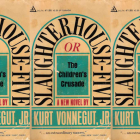MFA vs. PhD

At 25, I started introducing myself as a writer when I met people at parties (or events I’d like to consider parties, supplied with wine and caviar—not beer and peanuts). Last year, at 28, I attended my first writer’s conference in Virginia and a fiction workshop. I felt like a wallflower who’d only just realized all the other flowers had long ago left the wall in pursuit of something deemed extremely useful in the American literary community—the MFA.
This came as no grand shock, as several years ago, Chad Harbach’s essay titled “MFA vs. NYC” split rails down the writerly world. Pens gone askew, we writers asked ourselves a question: Do we pull a Hemingway and travel the world living hand-to-mouth or make like Junot Diaz and embark on a teaching track? Judging from recently published American fiction, it would seem the MFA’s tentacles have a tight grip.
Likewise, the MFA is a writerly passage all my fellow workshoppers of last summer embraced. Seeing my fresh-faced youth, each one asked me, “Have you thought about an MFA?” Others said, “Only do it if it’s fully funded.” Still, their overall consensus was, “It’ll give you time to write.”
There’s no surer way to seduce an aspiring artist than with the promise of countless free hours. When I got back to Tennessee post-conference, I dug around MFA program sites and came upon several universities also offering a PhD in Creative Writing. Intrigued, I dug around some more. Though this program has existed twenty-some odd years, there isn’t a lot of information out there, at least as far as a Google search goes.
To navigate the Creative Writing PhD, it helps to examine it in relation to the ever-popular MFA. The most obvious difference between the MFA and the PhD is the length of the program (2-3 years vs. 4-6). However, if you’ve got the time to commit to a PhD, you may find it well worth your while thanks to these notable attributes:
*At the PhD level, more emphasis is placed on literary theory and research, as most dissertations require a critical component—either demonstrated research or a piece of scholarly writing to supplement the creative dissertation.
*The literary workshop, that mainstay of MFA programs, is present in most PhD programs, though much diminished. In addition to courses in their genre of choice, students have the opportunity to explore others and supplement their learning with electives in other genres or artistic areas. As a PhD student, you’ll receive a broader overview of your own writing within its contemporary literary context.
*Since most enrolled students already have a Master’s you can easily enter into teaching at the PhD level in Creative Writing. Some institutions even get you started right away teaching English 101 or English Comp to undergrads. If you’re nervous about diving in headfirst to pedagogy, opt for a program that gives you a couple years to orient yourself before assigning teaching tasks (they’re out there!). Granted, the teaching stipend isn’t much, it should cover living costs (depending on where you choose to study). Consider it your 500£ a year à la Virginia Woolf’s famous advice.
*Call me crazy, but it seems like no one really talks about this program. Sure, compared to the MFA, a PhD is more of a time commitment. I have a hunch it also has something to do with the attached language requirements. Most programs require reading knowledge in two foreign languages or advanced knowledge in one. Before you get too intimidated, many institutions allow you to reach this proficiency level while you study. If your French and Spanish are still a little rusty, you’ve got five or some odd years to demonstrate your skills through a test or writing assignment. Also, if you’re interested in translation work, many PhD in Creative Writing programs encourage dissecting literary texts in other languages.
*PhD programs provide ample opportunities to embrace your literary community. Want publishing experience? A lot of universities are affiliated with a nearby literary magazine. What about literacy tutoring for children? Bottom line is a PhD gives you enough time to put down deep roots in your new city or town.
*The job outlook is a little brighter for PhD students, many often getting teaching job offers and moving beyond adjunct roles upon graduation.
*Now, for the crème de la crème—the creative dissertation, that piece of writing that students develop and complete during the program. Either a novel or book of poetry, this work should, in essence, be submission-ready by the end of your PhD study. Rather than a handful of stories or a novel-in-progress, the goal of PhD work is a finessed manuscript. I get excited just thinking about it.
If you’re like me, you prowl around most decisions in life. Perhaps you’re thinking hard about the Creative Writing PhD but not entirely sold on the time commitment. If you’d like years of teaching experience, to build up a piece of creative and perhaps also critical writing, get better at research, hone your foreign language skills, and dig down roots into a supportive literary community, then please consider it. Perhaps in the next decade or two, there will be more fiction writers who choose to leave the “Dr.” off the covers of their first novels.
At the end of the day, a title-swathed education is all in what you make of it. For those wanting to pursue an advanced literary degree in order to teach at all levels, the Creative Writing PhD is worth considering. Each program provides you handfuls of time to hone your craft, while some even pay you to do so. Now all you’ve left to do is find a room of your own and get writing.



